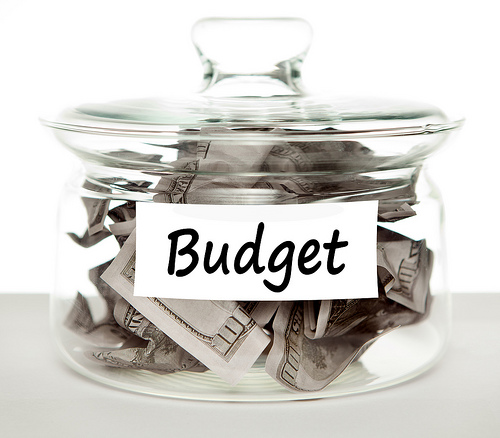
by Adam | May 22, 2015 | Credit Repair
If you’ve ever had a bad credit score, you know that it often involves a cruel cycle of debt, missed payments and collections. It can be hard to break out of this cycle, mostly because that requires perseverance – nothing is going to get better overnight. You’re in it for the long haul. So how do you go about breaking out the bad credit cycle? Here are 4 steps that will give you a pretty good chance of building good credit, and making sure things stay that way. Step 1: Set up automated bill payments It can be hard to remember when bills are due, and even one missed payment can erase months of progress repairing your credit. The easiest, and most stress-free method of avoiding late payments is to set up automated bill pay whenever possible. Virtually every credit card company allows this, and it’s also an option for other bills such as utility payments and cell phone bills. Once you set up your automatic bill pay, you no longer have to worry about making a payment on time (although you still need to make sure there’s enough cash in your bank account). Step 2: Pay off your entire credit card balance each month Pay off your credit card balance (down to zero) each and every month to avoid falling back into a cycle of debt. Not only does this ensure you don’t build up credit card debt that take years to pay down, it also makes it so you pay zero dollars in interest. Win-win. Step 3: Don’t use your credit card unless you have the cash to...

by Adam | May 15, 2015 | Credit Repair
Last week I wrote about where to start if you’re new to budgeting. Now we’re going to set pen to paper and nail down some concrete strategies for crafting a family budget that actually works for you. We already outlined how to track expenses and separate wants from needs. Armed with this information, you are now fully capable of creating a budget that puts you on the right financial track. But first, you have a few more things to take care of. 1. Decide on a financial goal A budget without a goal is like a TV show without a relate-able central character; there’s little motivation to stick with it through the end. You need a powerful financial goal to make your budget work. For many families, their main goal is to get out of debt. This can be a very powerful goal, especially since it allows you to set deadlines and hold yourself accountable for meeting those deadlines. Other examples of financial goals are: Saving enough money for a down payment on a home Saving for retirement Having enough room in your budget for annual vacations Growing a college fund for your children All these are excellent financial goals, but no matter what you choose it needs to be tailored to you and your family. The right goal will give you the motivation to carry on when the going gets tough. 2. Choose a budgeting platform There are literally hundreds of software programs designed to help you craft a family budget, many of them free of charge. You want to choose a budgeting platform that is easily accessible, that you can quickly check...

by Adam | May 8, 2015 | Credit Repair
Drafting a budget and sticking to it is the single best thing you can do for your personal finances. So why is it so hard for so many people? One reason people drag their feet when it comes to budgeting is that they think it’s difficult. It’s complicated, you tell yourself, and it will just make me feel bad about yourself, so why bother? Well, I’m here to tell you that budgeting is easy. It’s one of the easiest things to get your head around, but you have to stop thinking of it as a chore to be avoided. It’s actually the one thing that will set you free from financial bondage, and it’s amazingly simple to do. So let’s get started with the basics – Budgeting 101. Where to start: 5 Steps to Begin Your Budget Budgeting can be summed up in a single sentence: tracking money that comes out and tracking money that comes in. That’s really all you’re doing. You take a look at the money your family earns, and you take a look at the money your family spends, and you adjust the spending column so that you don’t end up spending more than you earn. Which brings us to step one of easy budgeting: 1. Track total income This is probably the easiest, and so we’ve put it first on our list. For most people, all you have to do is look at monthly salary or wages. If you have fluctuating income (maybe you do freelance or seasonal work), then you might have to do a little estimating. In that case, look at what you’ve made...

by Adam | May 1, 2015 | Credit Repair
Credit reports are long and complicated. It can feel like a pain to get a hold of them (although requesting your free annual report is a cinch). So why is it so important to stay on top of the details in your credit report? Why do you have to know what’s contained in those pages? Here are 5 of the biggest reasons why you should check your credit report regularly (at least once per year, preferably more). 1. Find errors in your report As many as 40 million Americans have errors in their credit reports. You won’t know if they are there unless you check your credit report. Also, don’t fret too much if you find an error; there are steps you can take to repair your credit, all by yourself. And if you don’t have the time or energy for DIY credit repair, there are reputable credit repair companies out there ready to help. (Ask yourself these 4 questions before hiring a credit repair company.) 2. Uncover identity theft Sometimes an error isn’t an error at all; it’s identity theft. You might not know that someone has stolen your identity until a collection agency is hounding you for a loan you never took out. If you’re regularly checking your credit report, then you can at least discover identity theft before it becomes a huge problem. 3. Make sure your credit is in good shape before you apply for a loan If you’re planning on taking out a major loan (such as a home mortgage), it’s important to be proactive and check out your credit report before you head over to the mortgage lender’s office....

by Adam | Apr 24, 2015 | Credit Repair
Unfortunately for many of us, repairing credit often involves dealing with collection agencies. Debt collectors get a bad reputation because of the questionable tactics some of them use to collect the debt, sometimes crossing over into harassment. Of course, not all debt collection companies use unethical practices, and there are laws in place to protect consumers from such tactics. In fact, the FDCPA (Fair Debt Collection Practices Act) sets several protections for consumers and makes some guidelines that can benefit your credit repair efforts as long as you know your rights and aren’t afraid to lay claim to those rights. One way you can take advantage of the FDCPA is by sending collection agencies a “Debt Validation” letter. Why Seek Debt Validation? According to the FDCPA, a collection agency must verify your debt or else it is considered invalid and they can’t report it to the credit reporting agencies. If they can’t verify the debt, they can’t attempt to collect the debt and they can’t attempt to contact you about the debt, either. If a debt collector doesn’t verify your debt, and reports the debt to a credit reporting agency anyway, then you can take them to small claims court and receive $1,000 from them as well as additional damages. How is a “Debt Collector” different from the original creditor? The difference between a debt collector and an original creditor is important, because only a debt collector is subject to the FDCPA. According to the law, a creditor is only the original entity that issued you the loan directly. A debt collector is defined as an entity that the creditor has hired to collect the debt, or an...







Recent Comments